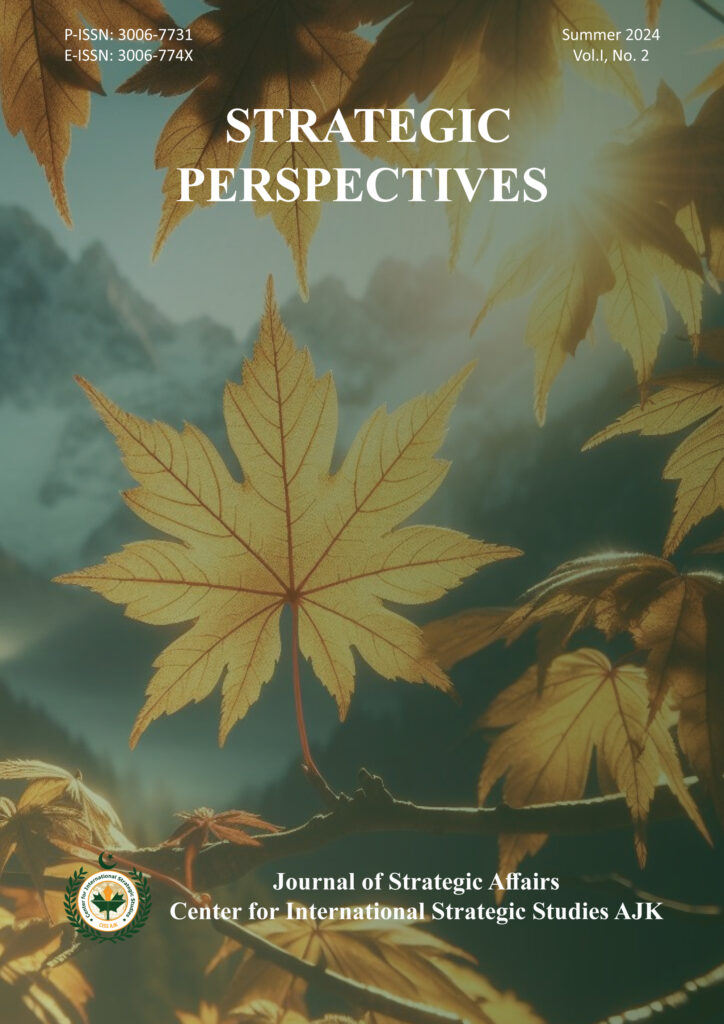Vol. I No. 2 (2024): Strategic Perspectives, Summer 2024
Gender Gap in Pakistan’s IT Industry: Implications for National Security of Pakistan
Irta Fatima Rizvi and Ammad Farooq

Published June 30, 2024
Abstract
The IT industry is a critical driver of economic growth and innovation globally, yet significant gender disparities persist, particularly in Pakistan. This study examines the underrepresentation of women in Pakistan’s IT sector, exploring its implications for national security. The problem is rooted in cultural norms, educational disparities, and workplace discrimination, which collectively hinder women’s participation and advancement in this field. The research employs the Human Security Approach as a conceptual framework, emphasizing the need for inclusive and participatory processes that prioritize the safety and well-being of individuals over traditional state-centric views of security. The central research question addresses how gender inequality in Pakistan’s IT industry impacts national security, particularly concerning human security dimensions. The major argument theorizes that gender inequality in the IT sector can lead to significant human security challenges and broader national security implications for Pakistan. Utilizing a qualitative methodology, the study draws on secondary data sources, including books, reports, journal articles, and newspaper articles. The findings highlight the complex interplay between gender disparities in IT and national security concerns, underscoring the need for targeted strategies to promote gender equality and enhance the country’s security posture.
Key Words
Gender Inequality, IT Industry, Pakistan, Human Security, National Security
